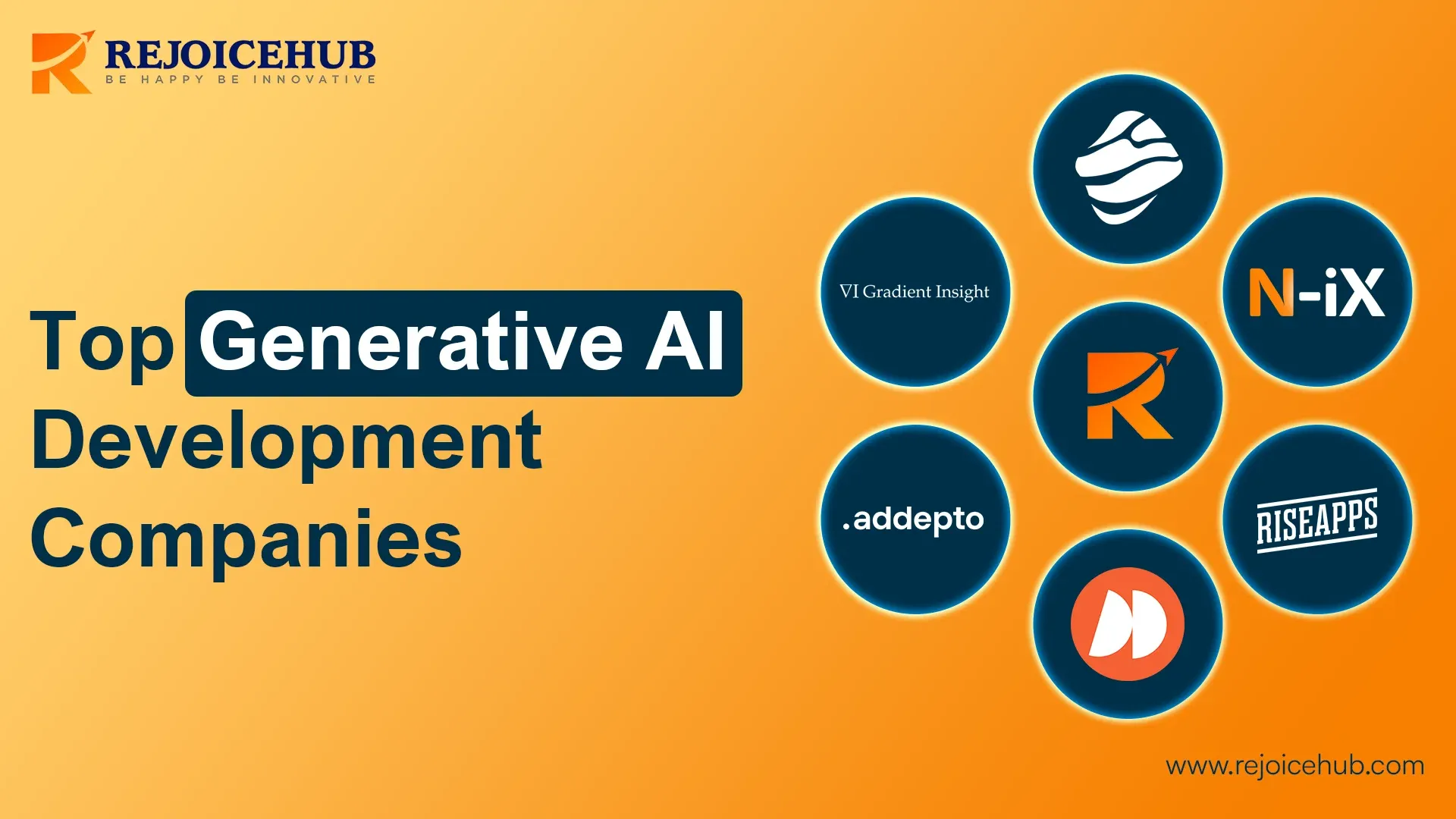
If you use Artificial Intelligence on a daily basis, you've definitely heard of Generative AI, as its contribution to industrial growth has increased significantly over the past year.
Generative AI models are currently helping in everything from content creation to designing virtual assistants that can think, learn, and respond like humans. This isn't just a futuristic concept in 2026; it's already a reality for many digital businesses. And many of today's businesses operate based on Generative AI.
I've personally worked with several AI frameworks and have observed companies shifting extensively to AI subsets for their repetitive operations and customer support.
In this detailed article, we'll try to understand Generative AI in detail and also find out who the top Generative AI development companies are in 2026, as this will help you a lot in your business automation.
Quick Summary
If you think that generative AI is only used for creating text and images, that's not the case at all. Generative AI is now used across the entire ecosystem, from decision-making to customer support. Due to the sheer number of use cases for generative AI, businesses are actively pursuing generative AI integration with top AI firms like Adepto, Gradient Insight Ltd, and RejoiceHub LLP. The advantage of integrating with a top firm is that they receive skilled technical support and long-term initial guidance.
And AI deployment through top firms is also much smoother. Since the advent of Large Language Models (LLMs) in the market, the pace of AI integration has increased significantly in the USA and European tech markets.
Our focus in this article:
1. What is Generative AI, and how does it work?
2. Why are businesses preferring Generative AI?
3. What are the benefits to businesses from using Generative AI?
4. What are the top trusted firms for Generative AI software deployment?
5. At the end of the article, I will guide you on how to choose a best firm for your business.
What is Generative AI?
Generative AI is also a part of Artificial Intelligence systems and can be described as a subset of AI that is used to generate new and creative content in different formats such as text, images, videos, music, or even code.
Traditional AI tools recognize input, classify it, and provide fixed results. However, modern generative AI tools can generate flexible and creative content.
In 2026, the market will already has top examples of generative AI models like GPT-4, DALL·E, and Midjourney. These platforms have transformed the concept of creativity or art, allowing you to generate unique artwork in minutes that would take weeks to produce with human artwork.
Nowadays, generative AI models help businesses automate and develop their workflows. Furthermore, companies can train generative AI using their company's data, benefiting from the AI model delivering personalized results similar to those of their employees. This will significantly reduce repetitive tasks in your company and improve decision-making capabilities. This will save your employees time and indirectly reduce your operational costs.
Why Generative AI Matters in 2026
You've likely heard about Generative AI tools and the billions in funding they provide in tech news. You're likely wondering why Generative AI is gaining so much popularity. There are many factors involved. Let's try to understand this from recent research. Many experts predict the Generative AI market will reach $1005 billion by 2034, growing at a CAGR of 44.2%.
Businesses and individuals are loving it so much in 2026 because it significantly accelerates content creation. Furthermore, E-commerce businesses use it for product descriptions and marketing copy, and all of these uses benefit businesses by saving time, effort, and costs.
And that's why Generative AI, which started for individual use, is now being used by large enterprises.
- Personalized Experiences: To provide high-quality and personalized customer experiences, businesses are now using multimodal AI systems that can flexibly handle multiple tasks. Such multimodal AI has significantly helped the healthcare, education, and e-commerce sectors in their daily operations.
- Operational Efficiency: As we know, generative AI-based chatbots can make automated decisions through predictive AI, reducing human error and providing businesses with a higher ROI.
- Innovation Speed: The innovation sector requires significant funding and experimentation, but generative AI makes it much easier to create and deploy prototypes. This enables businesses to perform faster manufacturing.
Generative AI provides valuable features for start-ups, enabling them to scale their operations faster. This significantly enhances the overall efficiency and innovation of businesses.
Top Generative AI Development Companies in 2026
We've learned a lot about generative AI. Now, let's explore the top generative AI development companies that are gaining popularity due to their expertise. You can use these top AI firms to drive scalability and innovation in your business.
1. RejoiceHub LLP
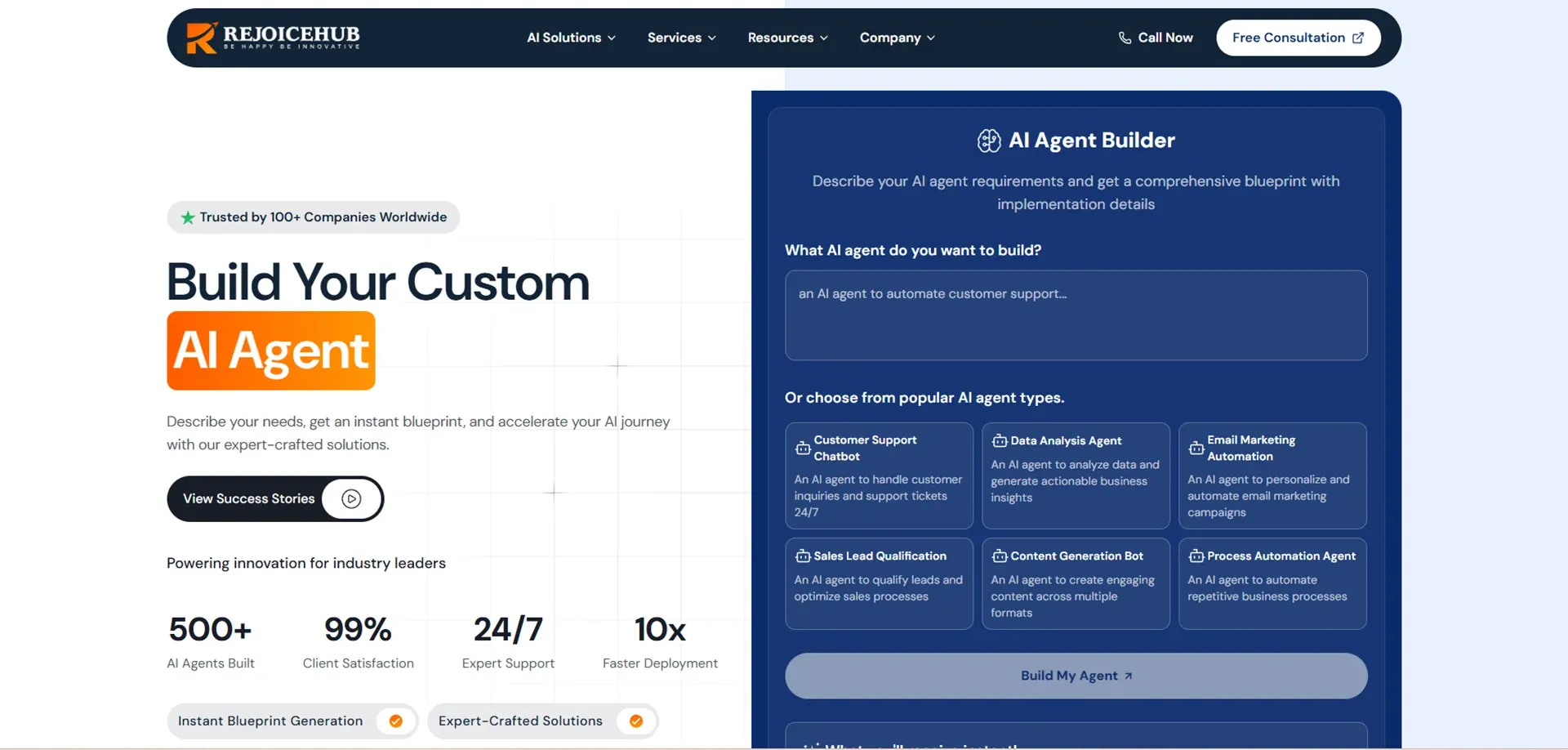
Over the past few years, RejoiceHub LLP has emerged as a leading and emerging firm in India. Known for custom AI solutions and generative AI development, the RejoiceHub team has years of experience in natural language processing (NLP), data analytics, and custom chatbot creation. And they have helped many top businesses automate complex workflows.
RejoiceHub LLM is known for its human-centric approach, as it not only builds AI solutions but also designs AI agents tailored to businesses' needs. The RejoiceHub team also assists with AI and custom solution deployments for sectors such as finance, e-commerce, and customer support, helping their clients achieve measurable performance.
Key Services:
- RejoiceHub also assists with AI chatbot development.
- RejoiceHub also has considerable expertise in machine learning consulting.
- This firm is also providing significant contributions in workflow automation.
Why It Matters:
RejoiceHub is an expert at deploying top-class AI agents, and if you require speed and transparency in a custom solution, you can choose RejoiceHub.
2. Miquido
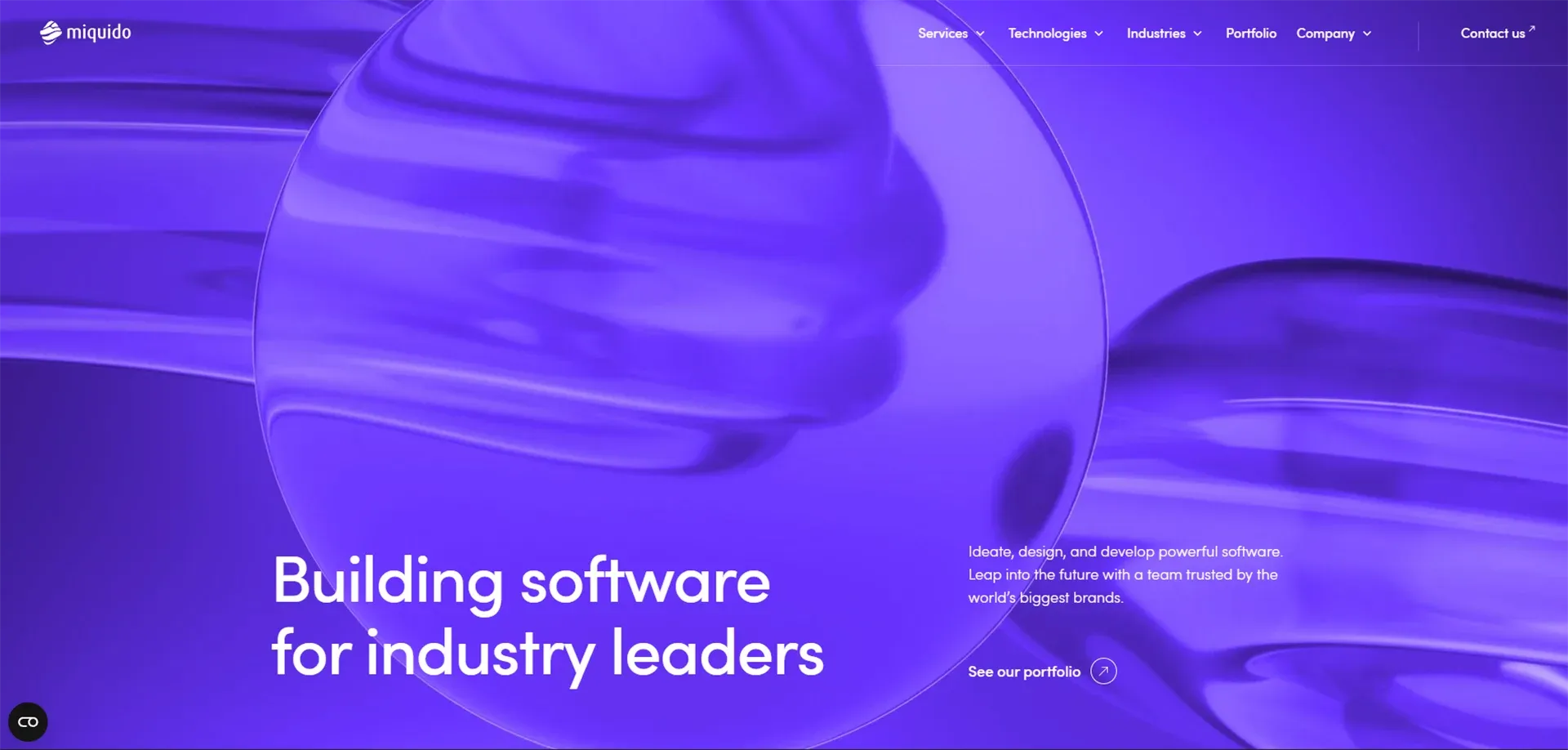
The Miquido platform is based in Krakow, Poland, and is recognised as one of the top AI consulting and software development companies in Europe. I have personally studied many of their business case studies and projects, and I can say that this platform follows a very detailed roadmap and strategy for deploying Generative AI. Their chatbots strictly adhere to compliance.
The Miquido platform began implementing machine learning models in the financial and healthcare sectors long before generative AI became popular. Their proprietary AI Kickstarter Framework significantly supports generative AI integration, helping businesses achieve higher production.
Notable Projects:
- Miquido built AI-based credit scoring solutions for NextBank, with a prediction accuracy of 97%.
- They designed generative AI chatbots for Verseo.
- Miquido is also known for its AI-powered document extraction for PZU.
Key Services:
- It offers AI consulting and integration support.
- This company provides significant assistance with LLM fine-tuning and model optimization.
- It also provides extensive features for AI-driven enterprise automation.
What Sets Them Apart:
They have a clutch rating of 4.9/5, and Miquido is a trusted global partner, having designed over 30 GenAI projects.
3. N-iX
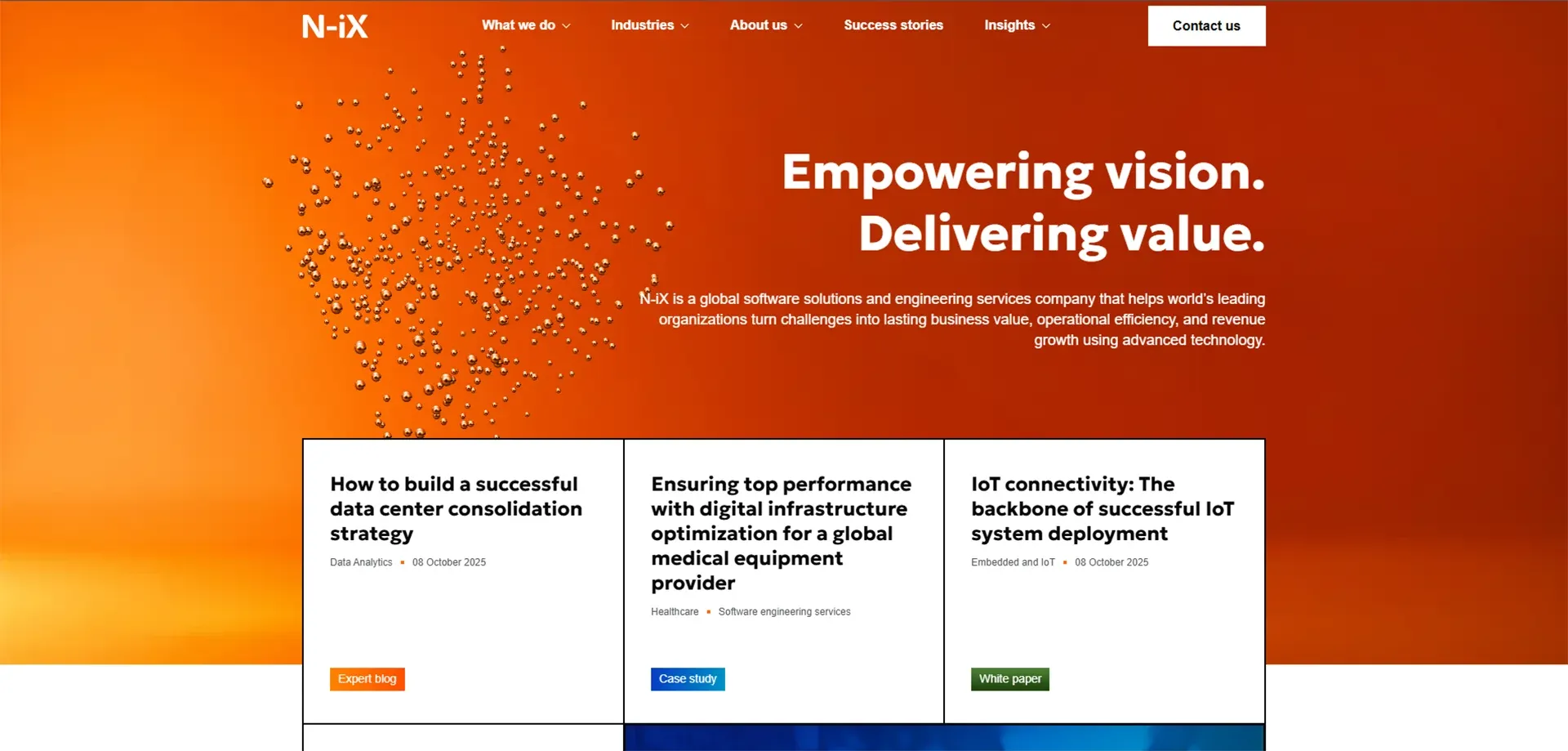
N-iX is headquartered in Lviv, Ukraine, it is known for its cross-industry AI adaptability. It has extensive experience building AI systems for finance, logistics, and healthcare, and is highly supportive of everything from supply chain forecasting to predictive customer analytics.
The company is also well-known for its RAG (Retrieval-Augmented Generation) pipelines and provides robust AWS-based data solutions, allowing companies to automate their operations more easily and quickly.
Notable Work:
- Its predictive churn model for e-commerce is also very popular in the industry.
- Additionally, their AI Copilot is known for its enterprise decision-making capabilities.
- Their AI Copilot helps with enterprise-level decision-making.
- They also design models for investment firms that can predict real-time market changes.
Why It Matters:
N-ix uses human intelligence or AI algorithms to provide custom solutions to businesses, creating models that not only compute but also understand business intent to deliver custom solutions.
4. Riseapps
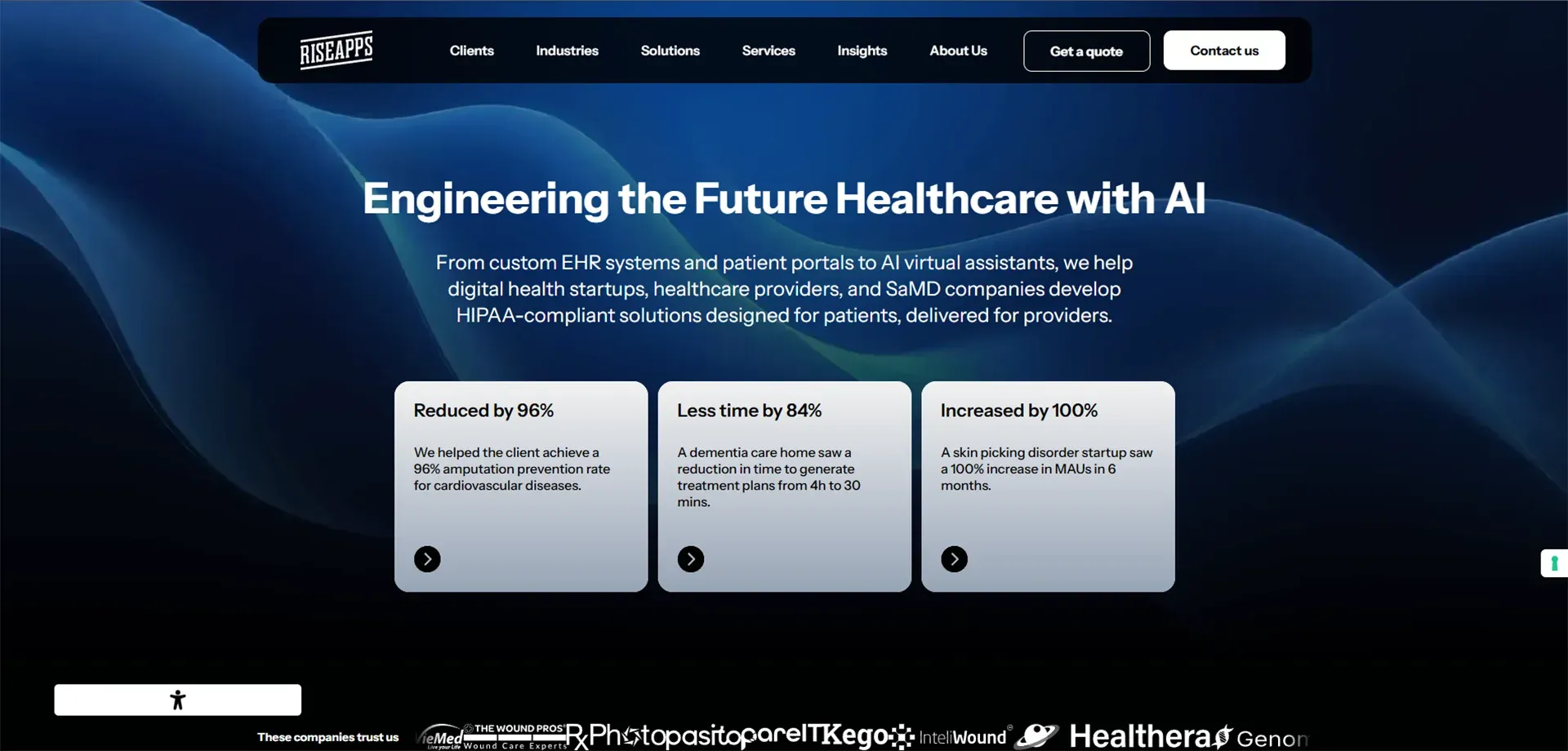
Riseapps is a fast-growing software firm that has established itself in the development of personalized AI-driven mobile and web apps. It specializes in generative AI solutions and provides highly effective automation with high-UX design. Most of its clients are new startups that require flexibility. The firm builds cost-efficient AI products.
Core Strengths:
- The firm has considerable expertise in AI mobile app development.
- It excels at NLP integration and sentiment analysis.
- Riseapps is also known for its training in predictive behavior modeling.
Their ability to deliver high-quality generative solutions with limited budgets makes them a sought-after solution for small businesses and emerging tech brands.
Also Read: How Generative AI Can Help Your Business Operations
5. BairesDev
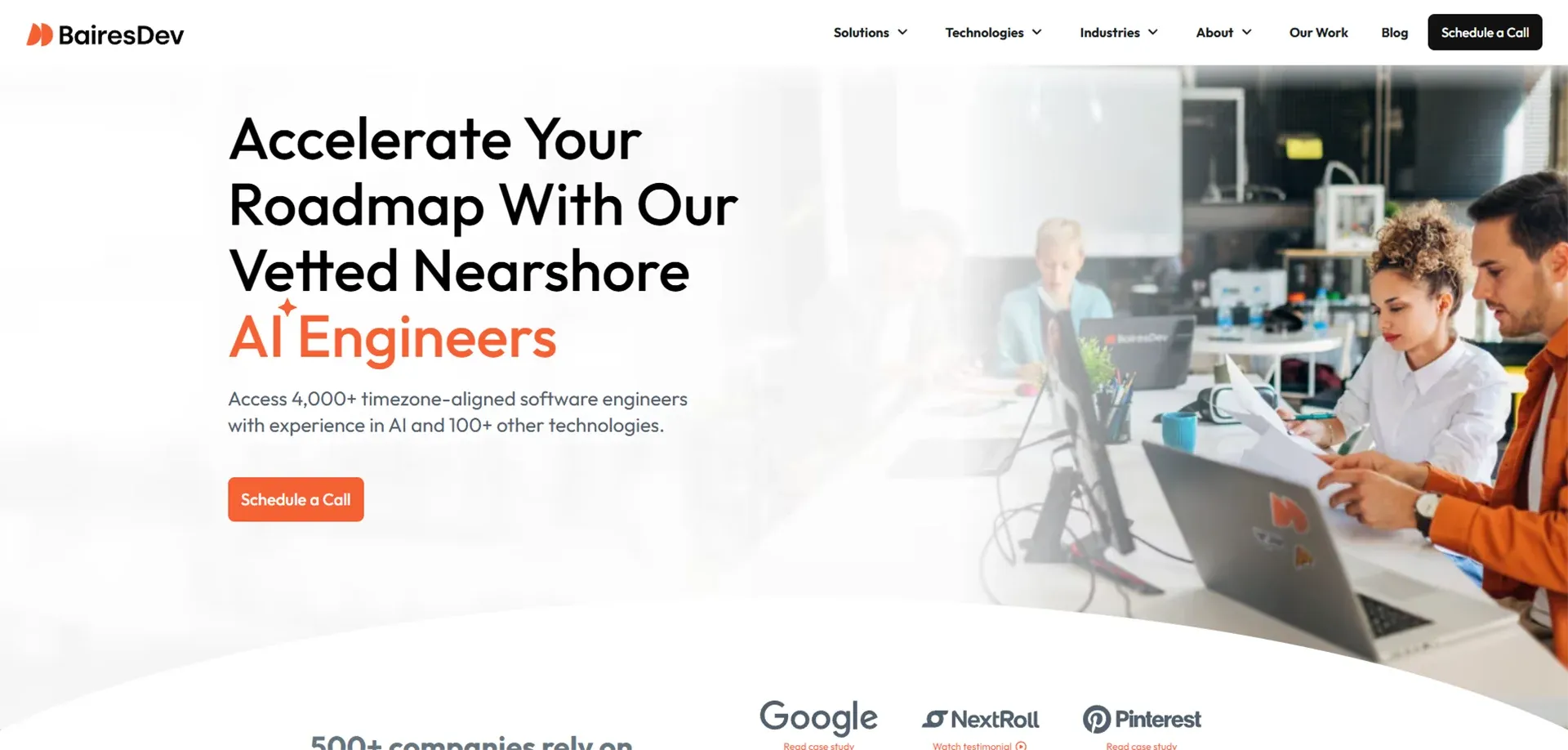
If scalability is your top priority, you may want to consider BairesDev, as they already have 4,000+ professional clients and are considered a top company in the generative AI solutions category.
BairesDev helps with everything from simple automation solutions to complex ones. They are known for integrating AI ecosystems at the enterprise level and are experts in building and deploying predictive analytics, conversational AI, and custom LLMs.
Key Offerings:
- This firm supports businesses with AI-powered workflow and process automation.
- They can also perform custom Large Language Model development quite effectively.
- You can easily perform enterprise integration with existing software.
- This firm has already served clients in the Fintech, Retail, Media, Education, and Manufacturing industries.
This company is known in Europe for its software solutions and invests heavily in innovation.
6. Addepto
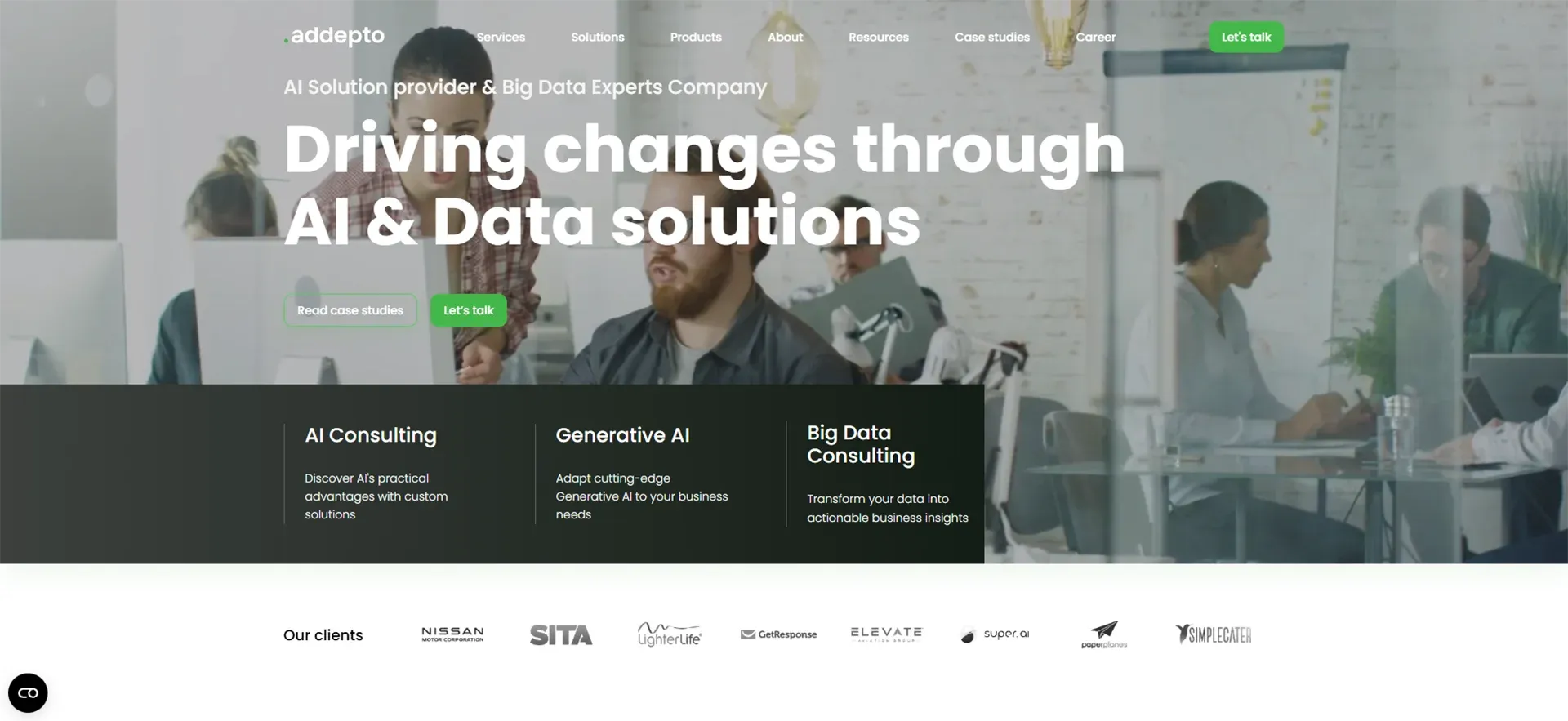
This firm is based in the USA and operates globally. Addepto's main focus is on data-driven AI consulting and enterprise-level generative AI integration, meaning it serves mostly top clients. They have a team of expert AI developers or designers available at all times for custom or troubleshooting solutions.
This firm provides end-to-end AI development and supports everything from model selection to implementation and monitoring.
Expertise Areas:
- This firm is known for generative AI and LLM fine-tuning.
- They provide predictive modelling and data science solutions.
- They are known for their AI-powered automation.
Their hybrid models allow businesses to deliver high-quality output by combining cloud-based generative AI with data privacy and innovation without compromising on the company's focus.
7. Gradient Insight Ltd
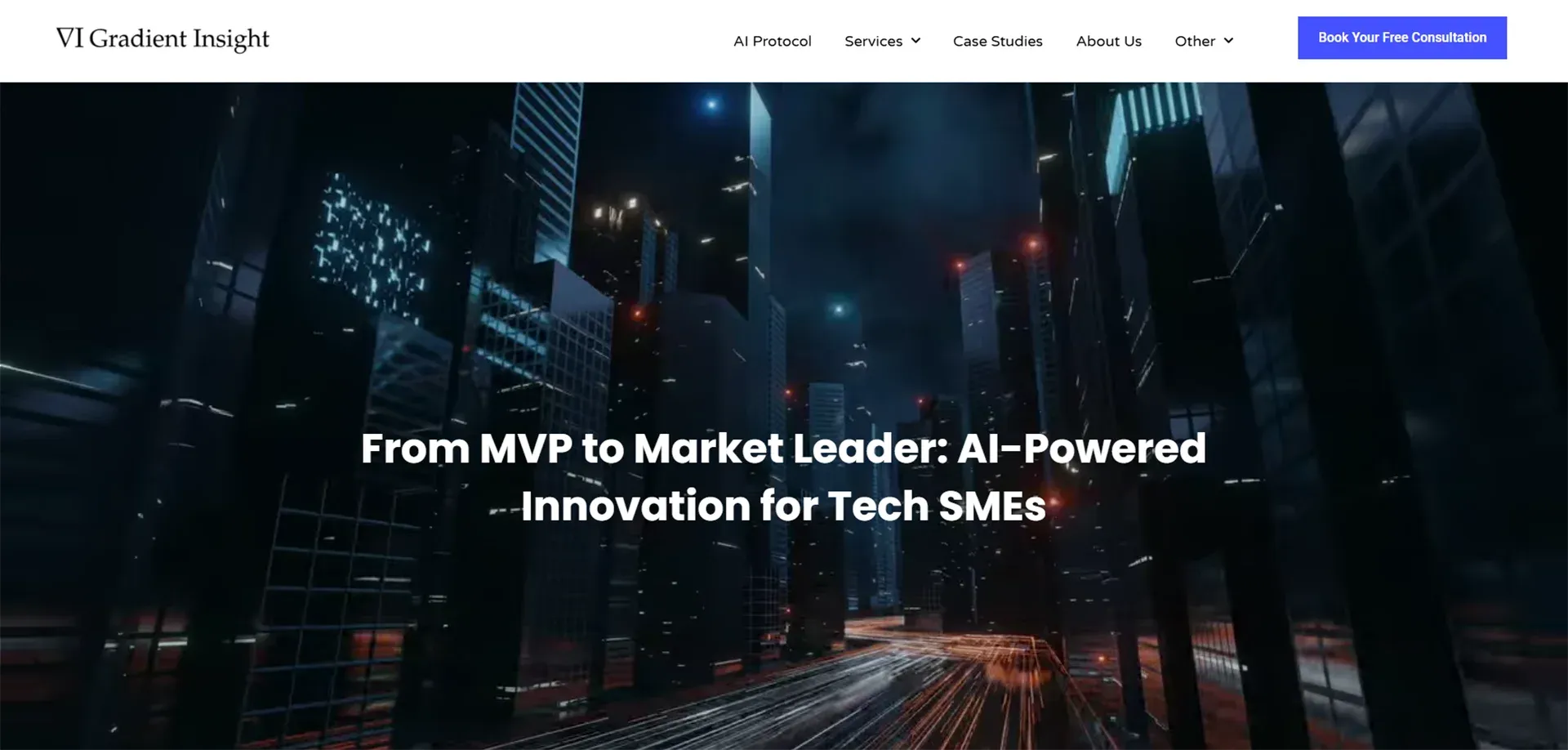
Gradient Insight Ltd, headquartered in the UK, is known for building AI solutions based on performance and precision. They are strong in computer vision and multimodal AI, helping clients blend images, audio, and text data, enabling them to build integrated systems.
Key Solutions:
- Gradient Insight also helps with AI model fine-tuning.
- If you need predictive analytics solutions, you might want to consider this firm.
- It can also easily handle image and voice-based AI applications.
- I really liked this firm's AI transparency and open collaboration, and it's known for its open collaboration and value responsibility.
How to Choose the Right Generative AI Partner
Now that we've learned enough about the top deployment firms for Generative AI, let's explore how to choose the right AI partner and what checklists you should consider, especially if your main focus is vision alignment and scalability. Let me share my practical consulting experience.

1. Assess Expertise
Always choose a company that works in multiple AI domains, whether it's NLP or computer vision. Then, review case studies and client testimonials to learn about their real impact stories.
2. Review Portfolio and Case Studies
Before selecting a firm, be sure to check out their completed GenAI projects. Top companies like Miquido and Adepto already showcase their portfolios on their websites, demonstrating their innovation and reliability.
3. Consider Scalability and Tech Stack
When deploying business AI, consider whether your partner company can handle growth. You should always choose an AI solution that can handle data loads and user demands without compromising performance.
4. Evaluate Support and Maintenance Services
AI models continue to evolve with better data, so it's crucial that your AI partner company also assists you with post-deployment monitoring, retraining, and regular optimisation updates, and RejoiceHub is the perfect firm for this.
Challenges in Generative AI Development
Generative AI is still evolving, which is why it's not often that challenges or issues are encountered. Most issues can be fixed by skilled employees. However, it's important to understand generative AI before deploying it to be aware of future issues.
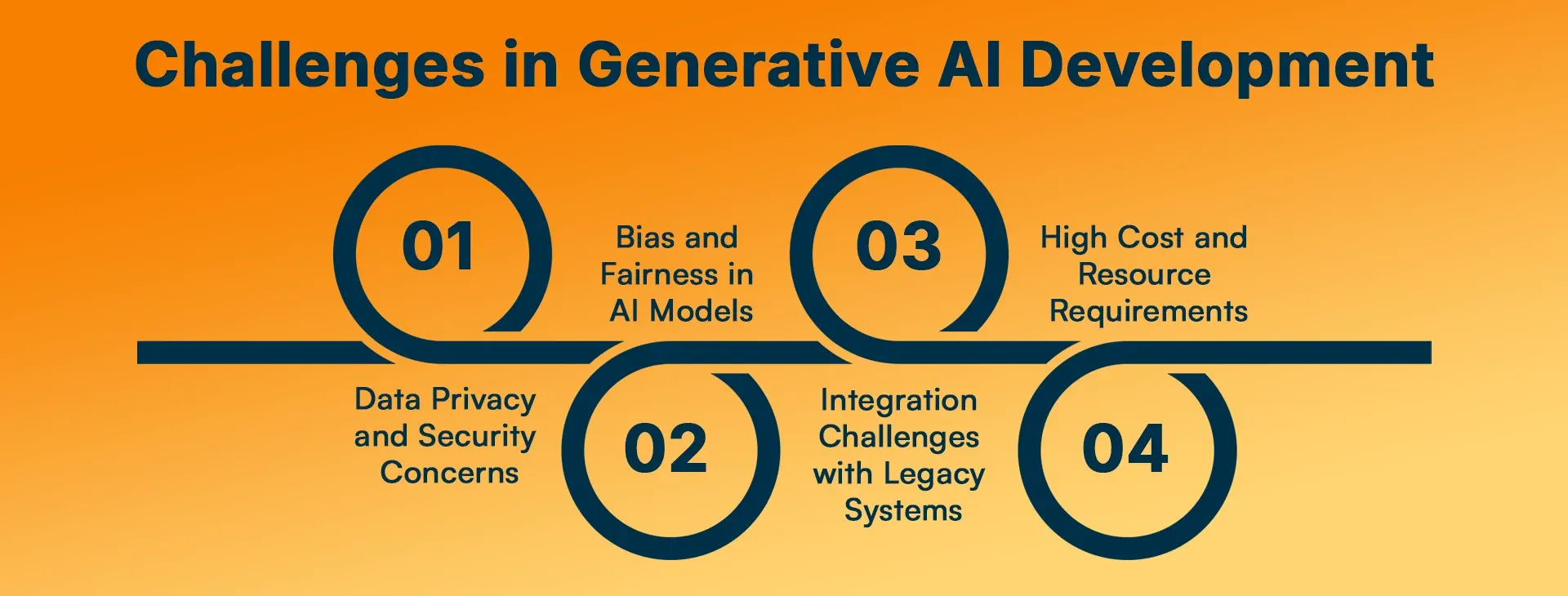
1. Data Privacy and Security Concerns
As we know, generative AI often uses confidential or sensitive data from companies for training, it's crucial that your AI model complies with GDPR, HIPAA, and other regulations. Because if the AI doesn't comply with regulations or has CRM access, the company may face issues like data leakage.
2. Bias and Fairness in AI Models
AI models only work unbiasedly when their training data is flexible and they are trained with appropriate data. In companies like Miquido that follow ethical AI frameworks, these models can significantly control discriminatory outcomes.
3. Integration Challenges with Legacy Systems
Whenever you integrate modern AI tools with older enterprise systems, you may face compatibility issues, as most models are designed for advanced systems. And if used with older systems, it can lead to integration issues and low accuracy. This is why many companies prefer hybrid deployment strategies like N-IX, so that it fits into all types of systems.
4. High Cost and Resource Requirements
Most generative AI models require significant computational power and training, so you should always choose scalable, cloud-optimised companies that help you reduce other costs.
Future Trends in Generative AI
Generative AI is still in an evolving phase, and this is the main reason why it achieved 54.54% growth this year compared to last year, and many experts say that its growth is going to be quite flexible and advanced.
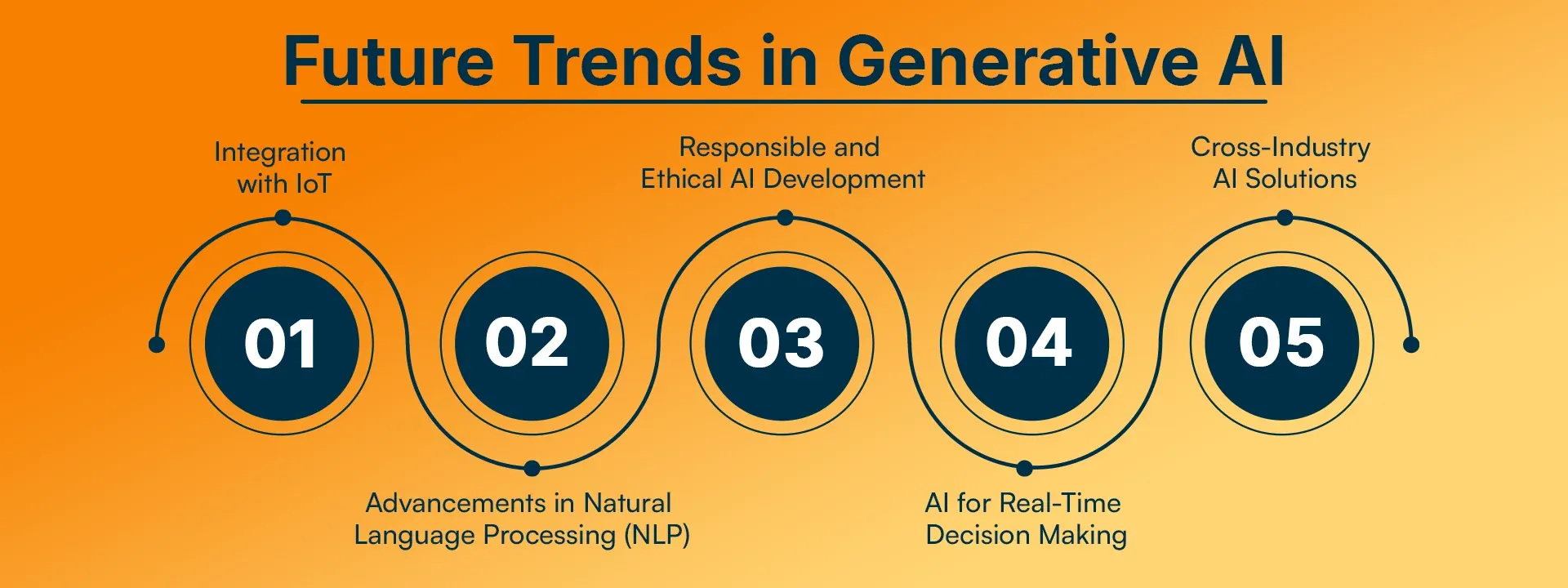
1. Integration with IoT
Many small devices will see generative AI used for commands like predictive maintenance, voice automation, and real-time control. Furthermore, the cost of most devices will also decrease significantly, making it accessible to mass users. This can be clearly illustrated by the example of television, whose overall market value is steadily decreasing.
2. Advancements in Natural Language Processing (NLP)
Next-generation models like GPT-5 and Claude 3.7 will become more refined for business requirements, and these models will significantly help businesses automate communication and tasks.
3. Responsible and Ethical AI Development
Future AI models or agents will be able to provide greater transparency, fairness, and explainability, and these will become top priorities as the government releases strict guidelines and regulations in the coming years.
4. AI for Real-Time Decision Making
AI agents or chatbots are already being used extensively in time-sensitive industries like logistics and trading, allowing businesses to make instant decisions with precision. They will also have access to automated analytics and in-depth data, which will greatly aid their research.
5. Cross-Industry AI Solutions
As AI evolves, specific AI models will begin to be created for specific industries, leading to generative AI not only being limited to the IT industry but also being increasingly used in healthcare, law, and entertainment sectors, boosting creativity and innovation.
Conclusion
As the next few years roll by, you’ll realize that Generative AI isn’t just a technology; it will become a part of our daily ecosystem, used in everything from everyday tasks to professional workspaces. And from the companies we know, each has its own core sector or specialty. But if you’re looking for affordable, seamless AI and custom software deployment, I recommend choosing a top Generative AI development company that leverages human creativity and customer needs to great effect.
Frequently Asked Questions
1. What is Generative AI used for?
You'll find many subsets within Generative AI, but it's mostly used to generate new content, whether in text or music format. It's also widely used in automation, design, education, and product development.
2. Which industries benefit most from Generative AI?
Generative AI is currently being used most in healthcare, finance, retail, media, and education, for tasks as varied as AI-driven marketing or customer support.
3. How much does Generative AI development cost?
Generative AI development typically costs $25 to $100 per hour, and this largely depends on the complexity and customization of the project.
4. Can Generative AI integrate with my existing systems?
If you use modern CRM systems, leading firms can design Generative AI models for you that integrate easily with your current systems.
5. What’s the biggest challenge with Generative AI?
Future regulations will be created for Generative AI, which could pose significant challenges for the industry. Data governance and unbiased experiences could also prove to be major challenges.
6. How can I pick the best Generative AI company?
To do this, you can look at case studies and client testimonials, and always choose a company that can provide you with long-term support services.
7. What’s the future of Generative AI in business?
Many experts predict that by 2030, AI automation will be used in most enterprise workflows, from decision-making to customer interaction. Furthermore, integration capabilities with LLM models will have improved significantly, which will greatly help existing companies scale the model.
